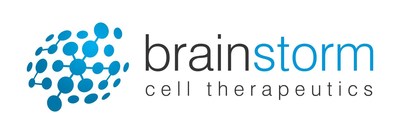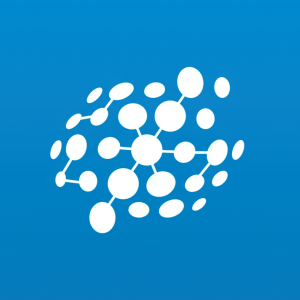BrainStorm Cell Therapeutics Announces peer reviewed publication of NurOwn's® Phase 3 Study for ALS in Muscle and Nerve
BrainStorm Cell Therapeutics (BCLI) announced the peer-reviewed publication of Phase 3 clinical data in Muscle and Nerve for its NurOwn® therapy aimed at ALS treatment. While the trial did not achieve statistical significance in its primary and secondary endpoints, analyses indicate a treatment effect in patients with less advanced disease. Key findings revealed larger treatment effects in these subgroups and significant biomarker improvements in neuroinflammation and neurodegeneration. The study reinforces the potential of NurOwn to provide clinical benefits for ALS patients and emphasizes the need for further evaluation.
- Peer-reviewed Phase 3 data published in Muscle and Nerve enhances credibility.
- Efficacy signals observed in less advanced ALS patients.
- Significant biomarker improvements in treated patients indicate potential therapeutic benefits.
- Trial did not meet statistical significance for primary/secondary endpoints.
- Inclusion of advanced disease participants diluted the trial's overall effectiveness.
Insights
Analyzing...
NEW YORK, Dec. 13, 2021 /PRNewswire/ -- BrainStorm Cell Therapeutics Inc. (NASDAQ: BCLI), a leading developer of cellular therapies for neurodegenerative diseases, today announced the peer reviewed publication of Phase 3 clinical data in Muscle and Nerve. The paper, entitled "A Randomized Placebo-Controlled Phase 3 Study of Mesenchymal Stem Cells Induced to Secrete High Levels of Neurotrophic Factors in Amyotrophic Lateral Sclerosis," can be found here.

Data from the paper are from a randomized, double-blind, placebo-controlled, Phase 3 trial evaluating the safety and efficacy of repeat doses of NurOwn® in study participants. Although previously announced results showed the trial did not reach statistical significance on the primary or secondary endpoints, pre-specified and post hoc analyses show a NurOwn-induced treatment effect across both primary and secondary efficacy outcomes in those with less advanced disease.
"I am thankful for all the participants, faculty and staff at the six trial sites who all worked together to ensure the quality and rigor of this study," said Merit Cudkowicz, MD, MSc, Chief of Neurology Massachusetts General Hospital, Julieanne Dorn Professor of Neurology Harvard Medical School, Director Sean M. Healey & AMG Center for ALS at Mass General Hospital, and the study's lead author. "There are both biological and clinical signals of a treatment effect — as a community, we must review these carefully. Understanding how to use biomarkers to tailor treatments, like NurOwn, is an essential new direction in ALS therapy development."
"Having these data peer reviewed and published in such a prestigious journal is an important milestone in the NurOwn development program, providing us with the ability to allow full transparency into the trial results and gain external validation from a journal devoted to publishing the most important findings on neuromuscular disorders and treatment options," said Chaim Lebovits, Chief Executive Officer, Brainstorm Cell Therapeutics. "When viewed in totality, we believe the trial's data provide evidence of NurOwn's effectiveness in driving meaningful clinical benefit for ALS patients with less advanced disease. We look forward to discussing these findings with regulators and remain fully committed to pursuing the best and most expeditious path forward to bring NurOwn to patients."
Key data and conclusions from the paper include:
Demographics:
- Baseline characteristics between treatment groups were generally well-balanced indicating randomization was effective.
- Participants enrolled in the trial had more advanced disease than in other late-stage ALS trials (average baseline ALSFRS-R = 31;
23% of participants with baseline ALSFRS-R ≤ 25). - The inclusion of trial participants with more advanced ALS disease appears to have had a dilutive effect that may have reduced the ability to show a treatment effect in the overall study population.
Efficacy:
- In the trial's overall population, the NurOwn group had a higher percentage of responders compared to the placebo group (
32.6% vs.27.7% ; p=0.45), which was not statistically significant. - Subgroup analyses based on disease severity at baseline consistently show larger treatment effects in patients with less advanced disease.
- In the pre-specified subgroup of participants with ALSFRS-R ≥ 35 at baseline (31% of trial participants),34.6% of NurOwn-treated participants achieved response vs.15.6% of placebo-treated participants (p=0.29).
- In a post-hoc subgroup of participants with ALSFRS-R >25 at baseline (77% of participants),34.7% of NurOwn-treated participants achieved response vs.20.5% of placebo-treated participants (p=.053).
Biomarkers:
- Large and statistically significant improvements from baseline were observed in cerebrospinal fluid biomarkers related to neuroinflammation, neurodegeneration, and neuroprotection in NurOwn treated patients, while biomarker levels in placebo patients were unchanged.
- Prespecified statistical modeling utilizing machine learning identified biomarkers that were predictive of treatment response with >
80% accuracy.
Safety:
NurOwn was well tolerated in the trial with no clinically significant differences in safety assessments observed between treatment groups.
Stacy R. Lindborg, PhD, Executive Vice President and Chief Development Officer, Brainstorm Cell Therapeutics, and co-author of the paper commented, "The publication provides a transparent view into this important NurOwn Phase 3 trial suggesting a meaningful clinical impact with NurOwn. The magnitude of the treatment effect in patients with less severe disease show that NurOwn is providing a robust and clinically meaningful benefit in this population. These benefits may also extend to additional patients, as pre-specified and post hoc analyses indicate that limitations in ALSFRS-R may have led to a floor effect that masked NurOwn-induced changes in patients with severe disease. This belief is further supported by biomarker data showing that NurOwn treatment led to significant, robust, and sustained changes across multiple pathways linked to ALS progression. We believe that collectively, these results demonstrate the potential of NurOwn to address the unmet needs of ALS patients and show that the future is bright for this differentiated cellular therapy."
Study Design
The Phase 3 NurOwn trial was a multi-center, placebo-controlled, randomized, double-blind trial designed to evaluate the safety and efficacy of repeat doses of NurOwn in 189 ALS patients. It was conducted at six centers of excellence: University of California Irvine (Dr. Namita Goyal); Cedars-Sinai Medical Center (Dr. Matthew Burford, Dr. Robert Baloh); California Pacific Medical Center (Prof. Robert Miller, Dr. Jonathan Katz); Massachusetts General Hospital (Prof. Merit Cudkowicz, Dr. James Berry); University of Massachusetts Medical School (Prof. Robert Brown) and Mayo Clinic (Prof. Anthony Windebank, Dr. Nathan Staff). Potential participants with ALS were screened during an 18-week run-in period and those who were rapid progressors (defined as patients with at least a 3-point decrease in ALSFRS-R score during the run-in period) were randomized 1:1 to receive three intrathecal injections (8 weeks between each injection) of NurOwn or placebo. Participants were followed for 28 weeks after treatment. The primary endpoints of the trial were safety assessments and a responder analysis of the rate of decline in ALSFRS-R score over 28 weeks, where response was defined as participants with a 1.25 points/month improvement in the post-treatment versus pre-treatment slope in ALSFRS-R at 28 weeks following the first treatment. Secondary endpoints included the percentage of patients with disease progression halted or improved, ALSFRS-R change from baseline, combined analysis of function and survival, slow vital capacity, tracheostomy-free survival, overall survival and cerebrospinal fluid biomarker measurements. For more information on the trial, visit https://clinicaltrials.gov/ct2/show/NCT03280056.
About NurOwn®
The NurOwn® technology platform (autologous MSC-NTF cells) represents a promising investigational therapeutic approach to targeting disease pathways important in neurodegenerative disorders. MSC-NTF cells are produced from autologous, bone marrow-derived mesenchymal stem cells (MSCs) that have been expanded and differentiated ex vivo. MSCs are converted into MSC-NTF cells by growing them under patented conditions that induce the cells to secrete high levels of neurotrophic factors (NTFs). Autologous MSC-NTF cells are designed to effectively deliver multiple NTFs and immunomodulatory cytokines directly to the site of damage to elicit a desired biological effect and ultimately slow or stabilize disease progression.
About BrainStorm Cell Therapeutics Inc.
BrainStorm Cell Therapeutics Inc. is a leading developer of innovative autologous adult stem cell therapeutics for debilitating neurodegenerative diseases. The Company holds the rights to clinical development and commercialization of the NurOwn® technology platform used to produce autologous MSC-NTF cells through an exclusive, worldwide licensing agreement. Autologous MSC-NTF cells have received Orphan Drug designation status from the U.S. Food and Drug Administration (FDA) and the European Medicines Agency (EMA) for the treatment of amyotrophic lateral sclerosis (ALS). BrainStorm has completed a Phase 3 pivotal trial in ALS (NCT03280056); this trial investigated the safety and efficacy of repeat-administration of autologous MSC-NTF cells and was supported by a grant from the California Institute for Regenerative Medicine (CIRM CLIN2-0989). BrainStorm completed under an investigational new drug application a Phase 2 open-label multicenter trial (NCT03799718) of autologous MSC-NTF cells in progressive multiple sclerosis (MS) and was supported by a grant from the National MS Society (NMSS).
For more information, visit the company's website at www.brainstorm-cell.com.
Safe-Harbor Statement
Statements in this announcement other than historical data and information, including statements regarding future NurOwn® manufacturing and clinical development plans, constitute "forward-looking statements" and involve risks and uncertainties that could cause BrainStorm Cell Therapeutics Inc.'s actual results to differ materially from those stated or implied by such forward-looking statements. Terms and phrases such as "may," "should," "would," "could," "will," "expect," "likely," "believe," "plan," "estimate," "predict," "potential," and similar terms and phrases are intended to identify these forward-looking statements. The potential risks and uncertainties include, without limitation, BrainStorm's need to raise additional capital, BrainStorm's ability to continue as a going concern, the prospects for regulatory approval of BrainStorm's NurOwn® treatment candidate, the initiation, completion, and success of BrainStorm's product development programs and research, regulatory and personnel issues, development of a global market for our services, the ability to secure and maintain research institutions to conduct our clinical trials, the ability to generate significant revenue, the ability of BrainStorm's NurOwn® treatment candidate to achieve broad acceptance as a treatment option for ALS or other neurodegenerative diseases, BrainStorm's ability to manufacture, or to use third parties to manufacture, and commercialize the NurOwn® treatment candidate, obtaining patents that provide meaningful protection, competition and market developments, BrainStorm's ability to protect our intellectual property from infringement by third parties, heath reform legislation, demand for our services, currency exchange rates and product liability claims and litigation; and other factors detailed in BrainStorm's annual report on Form 10-K and quarterly reports on Form 10-Q available at http://www.sec.gov. These factors should be considered carefully, and readers should not place undue reliance on BrainStorm's forward-looking statements. The forward-looking statements contained in this press release are based on the beliefs, expectations and opinions of management as of the date of this press release. We do not assume any obligation to update forward-looking statements to reflect actual results or assumptions if circumstances or management's beliefs, expectations or opinions should change, unless otherwise required by law. Although we believe that the expectations reflected in the forward-looking statements are reasonable, we cannot guarantee future results, levels of activity, performance or achievements.
Contacts:
Brainstorm Contacts
Investor Relations:
John Mullaly
LifeSci Advisors, LLC
Phone: +1 617-429-3548
jmullaly@lifesciadvisors.com
Media:
Mariesa Kemble
kemblem@mac.com
![]() View original content:https://www.prnewswire.com/news-releases/brainstorm-cell-therapeutics-announces-peer-reviewed-publication-of-nurowns-phase-3-study-for-als-in-muscle-and-nerve-301443005.html
View original content:https://www.prnewswire.com/news-releases/brainstorm-cell-therapeutics-announces-peer-reviewed-publication-of-nurowns-phase-3-study-for-als-in-muscle-and-nerve-301443005.html
SOURCE BrainStorm Cell Therapeutics Inc.







